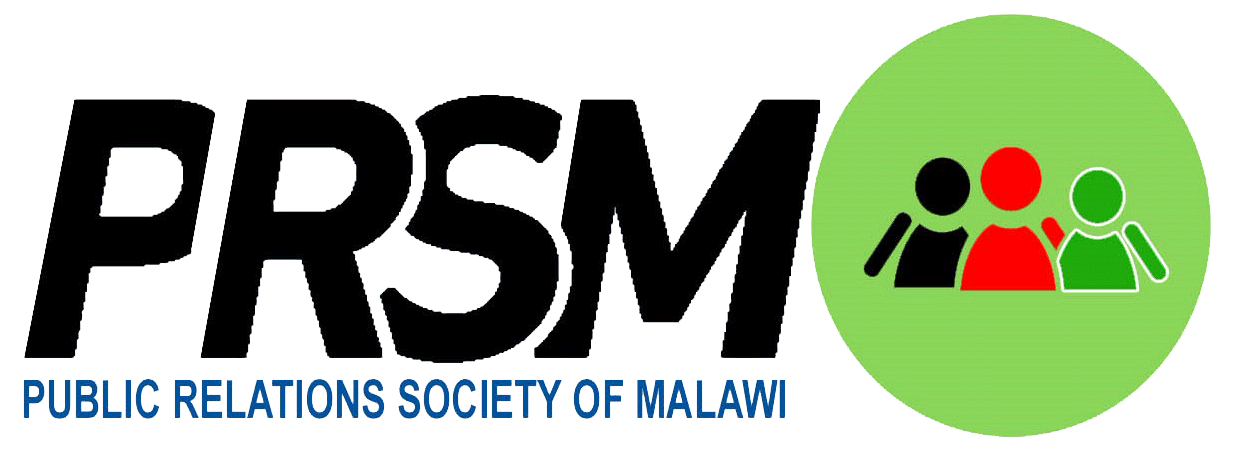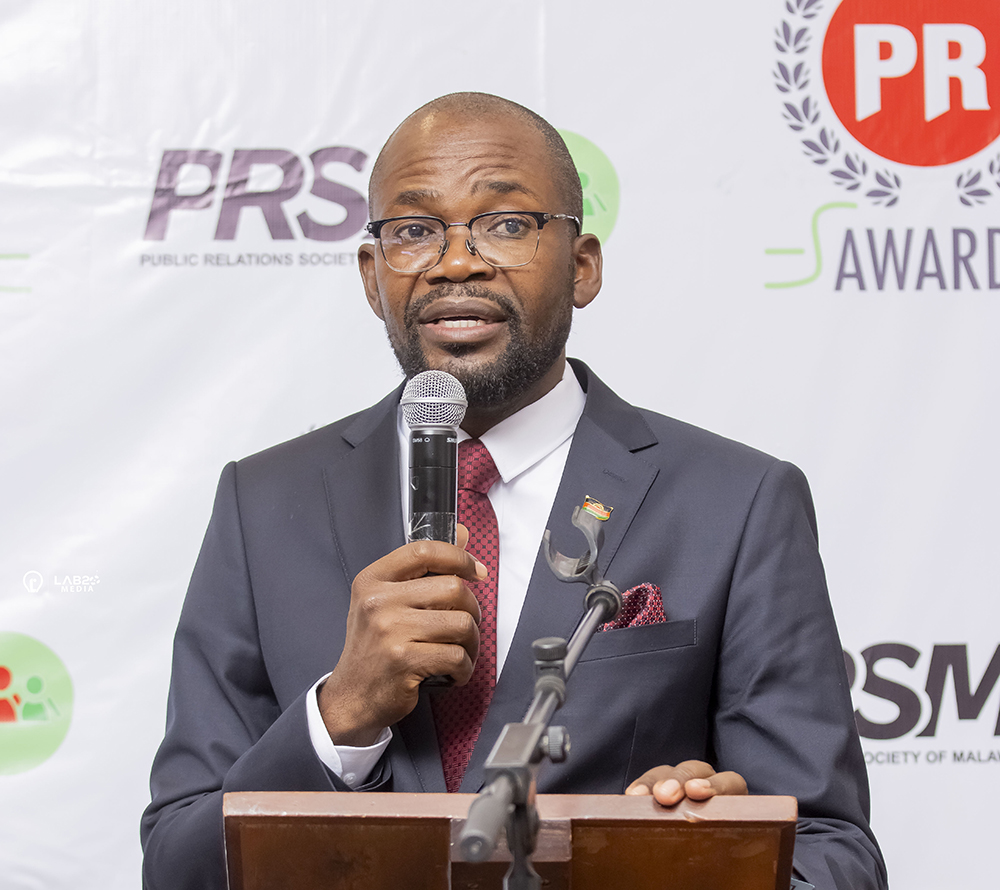Keynote address by Dr George Partridge to the Public Relations Society of Malawi (PRSM)
Virtual Annual General Meeting to be held on 26th February 2021 18.00hrs-21.00hrs
Introduction
Mr President, I am humbled to be invited to your AGM as guest of honour, and it’s a pleasure to make a Key Note Address to your esteemed members.
So, welcome all of you to this first ever AGM of the Public Relations Society of Malawi (PRSM). I am sure we all understand why we are holding this AGM virtually. The Covid-19 pandemic has indeed overwhelmed the whole world.
I know, we must have all been looking forward to a physical AGM, may be at the shores of Lake Malawi. And as these things usually go, followed up by a dinner and dance. I would have loved to demonstrate a few steps I have mastered in the past days while working from home!
And let’s be honest ladies and gentlemen, that although we are all being told to cherish and embrace technology, an in person physical AGM is more exiting that a virtual one. But, let’s make the most of it.
However, we should keep faith in that we will get back to our normal lives if we continue to fight the pandemic by following the measures provided by the health authorities: masking up, sanitize, wash our hands regularly with soap and observe social distancing!
I am hopeful that next year’s AGM will be a normal physical, in person AGM.
Now what is the role of PR in management
I do not have to spell out to members what roles you have to play in your organisations. Needless to say that the PR function is a very critical function in any organization. Together with the CEO, the PR executive is the face of the company.
There have been many cases where CEOs have been asked to resign and have lost their jobs. Companies have collapsed simply because the CEO or senior executives have misspoken to the public. Unfortunately, it is only after the fact that most companies realise that your advisory role as well as execution role can make or break a company.
Let me give you one of the most dramatic examples of what I literally saw unfolding in front of my own eyes. In 1991, I was attending a post graduate course in finance at The London Business School. That day, we were so much engrossed in the mathematics of derivatives and how to use them in the context of the stock market as managers of listed companies.
When I went back to base that evening, I switched on the TV. The name Gerald Ratner, the Chairman of one of the most successful high street, high end of the market jewelry retail shops across the UK was all over all news channels. He had just addressed a conference of the Institute of Directors in the afternoon that day.
The company had an outstanding performance that year and surpassed all analysts’ expectations. As he was going through his presentation, one of the participants asked why one of his products was particularly very successful on the market.
This is what he said: “We make that product out of crap, and we make lots of money out of it, that product is actually 99% crap. Our company thrives on good margins in making crap. We channel all our efforts to make sure that customers believe that they are buying products of value. Basically, we sell crap.” Or something to that effect. I am paraphrasing.
Next morning, the market value of Ratner’s shares dropped by GBP500m, and the price was continuing to drop until the LSE suspended trading. The same morning Gerald Ratner resigned. The reaction was swift. That’s 30 years ago.
Now, when we went back for lecturers the following morning, we abandoned all the previous technical lessons. The lecturer arranged that we had to have a whole day lecture on PR and invited his colleague from the mass communications department. His thinking was that all what the finance lecturer was teaching would be in vain if we do not recognize the value of the PR function in our day today management responsibilities.
In the ensuing days after the episode, the municipal authorities struggled because Ratner’s jewelry was being thrown away into trash bins and eventually almost all the 330 shops were going to be closed.
It was no longer fashionable to buy jewelry in Ratner’s shops. Mr Gerald Ratner as I speak is on the speakers’ circuit travelling all over the world advising executives on PR and talking about what in PR is now famously known as the “Ratner effect”. You may have probably come across the phenomenon known as the Ratner’s effect.
When I joined National Bank in 1994, my expatriate CEO was asked to resign because of a subtle sentence he uttered at Kwacha International Conference Centre which was perceived to be racist. Of course, what he actually said may have been exaggerated as the news spread. However, damage had already been done. As is always, the public liked the exaggerated version of events.
Staff refused to work for him, so too the regulator. Customers were disgusted. Some started moving their accounts to other banks. Since I had just joined NBM from the Reserve Bank at that time, I got a call from one of my senior colleagues at the RBM. He asked me whether my boss understood the implications of the statement he made at the conference because his bosses at RBM could not work with him anymore.
For those who are in PR roles in government or for politicians, we all know too well that elsewhere several high ranking and competent politicians do resign because of a sentence or two that they uttered in public. I know here our politicians cannot resign when they say similar silly things.
What’s current? Just 2 or 3 days ago, the famous Ellon Musk lost $15.5b dollars because of releasing a single insensitive tweet. Because of that tweet, he is no longer occupying the number one spot of the richest person. Of course, for him $15.5b is small change. But just imagine how a careless single tweet can cost! To put it into perspective, the amount of loss because of this single tweet is the entire budget for Malawi for 6 years!
I can cite many examples here. In all these cases, you may ask, what was the role of PR before and after the event? Do we continuously advise our leadership on issues of PR? Do we have organizational strategies and policies on PR?
We now have another new challenge added on to your menu of problems as PR professionals: How do we deal with social media to our advantage? What is our policy in terms of handling social media, tweeter, Facebook etc. What is our policy in handling fake news or any malicious utterances about our organisations on social media? Ellon Musk just lost $15.5b by a single tweet.
How do we learn that sometimes the best advice is to keep quite as it may always be tempting to respond to anything directed at our organization? The PR function is sometimes to restrain us to not to communicate at all in certain instances. I know this is hard sometimes, especially when you have loud mouthed bosses.
I do not have the answers to that as a CEO. But I expect my PRO to be pro-active. I expect the PRO help draft and evaluate every speech I make.
I expect my PRO to assess whether it is me or the PRO doing the communication for a particular subject. I expect my PRO to anticipate questions and help me rehearse how questions can best be answered at a press conference, for example.
So, when I was at National Bank, as a general rule, I agreed with my PRO that I handle good news only. All bad news be handled by the PR function. There were exceptions of course, but the arrangement worked most of the times.
My point is that successful organizations are the ones that do some planning on how to communicate effectively with all its stakeholders. Whether it be its customers, its suppliers, its shareholders or the general public at large.
We should remember that all organisations be it commercial or otherwise, their survival depends on the sustenance, first and foremost, of public trust. Public trust builds confidence in all stakeholder dealings with the organisation, be it customers, shareholders, suppliers and regulators.
Once trust is broken, and confidence is eroded, that’s the end of the company.
Once again, Public Relations is a critical management function which should not be taken lightly because it can make or break an organization as demonstrated by the few examples made earlier.
And this is why in my organization, the communications function works directly under my supervision.
Again, what do I expect from PROs?
For me as a basic requirement, I expect any organization to have comprehensive companywide PR strategy which is consistent with the company’s strategy.
I expect a standard Who, What, How guideline on any strategy. This is a standard guideline for execution of any strategy and a PR strategy in my opinion is no exception. For everything you do, I ask my PRO to have this broad guideline template.
Who is your target audience?
What are you intending to communicate?
How are you going to go about it? What channel is the most effective? Who is delivering the message?
Some of the key strategies, policies and templates that management expects from public relations managers like yourselves include the following areas:
Communications management in general
Crisis management
Issues management
PRs Role in marketing management
Relationship management
Reputation or image management
Risk management
Let me thank you for inviting me to speak to you at this important event. I wish you all the best during your AGM. I understand that you will be electing office bearers. I wish those contesting all the best. For those who will not make it into the positions, I urge you to support those who will win so that together you can build a strong professional grouping.
It is now my singular honour and pleasure to declare this virtual meeting officially open.
Keep Safe and God Bless!



